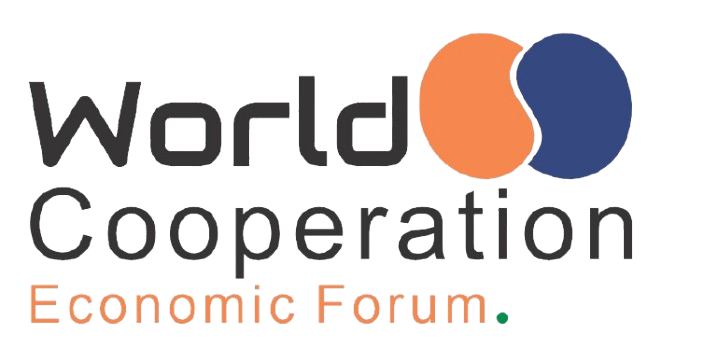United Nations and Cooperatives: Alignment with Global Goals
The United Nations (UN) has long recognized the critical role of cooperatives in achieving sustainable development goals (SDGs). By 2025, the relationship between the UN and cooperatives is expected to deepen, leveraging their potential to address global challenges such as poverty, inequality, and climate change. United Nations and Cooperatives: Alignment with Global Goals 1. Sustainable Development Goals (SDGs): Cooperatives directly contribute to multiple SDGs, including: No Poverty (SDG 1): By empowering small-scale producers and ensuring fair distribution of wealth. Decent Work and Economic Growth (SDG 8): Through job creation and promoting worker-owned enterprises. Reduced Inequalities (SDG 10): By fostering
Achievements of the Co-operative Sector in India
Achievements of the Co-operative Sector in India The cooperative sector in India has played a significant role in fostering economic development, social empowerment, and equitable wealth distribution. Rooted in the principles of mutual aid and collective ownership, cooperatives have successfully addressed challenges in agriculture, rural development, and financial inclusion. Key Achievements of the Cooperative Sector in India 1. Agricultural Transformation Green Revolution Support: Cooperatives have been instrumental in distributing seeds, fertilizers, and agricultural inputs to farmers, particularly smallholders, during the Green Revolution. Procurement and Marketing: Organizations like NAFED (National Agricultural Cooperative Marketing Federation) ensure fair prices for farmers' produce
Sustainability and the World Cooperation Economic Forum (WCEF):
Sustainability and the World Cooperation Economic Forum (WCEF): Sustainability is at the core of the World Cooperation Economic Forum (WCEF), driving its vision of a balanced global economy that meets the needs of the present without compromising the ability of future generations to thrive. The WCEF emphasizes the interconnectedness of economic, social, and environmental dimensions and seeks to align cooperative strategies with sustainable development goals (SDGs). --- Key Sustainability Focus Areas of WCEF: 1. Promoting Green Economies: Advocating for the adoption of renewable energy, circular economic models, and eco-friendly technologies to minimize environmental impact. Supporting industries and cooperatives that
Vision of the World Cooperation Economic Forum (WCEF):
Vision of the World Cooperation Economic Forum (WCEF): To create a globally inclusive economic ecosystem where cooperation, equity, and sustainability drive shared prosperity, empowering communities and fostering resilient, ethical, and sustainable growth for future generations. Mission of the World Cooperation Economic Forum (WCEF): 1. To promote cooperative economic models that prioritize shared ownership, democratic governance, and equitable wealth distribution. 2. To foster global partnerships among governments, businesses, civil society, and cooperatives for addressing pressing global challenges, including inequality, poverty, and environmental degradation. 3. To align economic activities with the principles of sustainability and social responsibility, ensuring long-term resilience for
Cooperative Commodities Exchange Platform (Co-op Exchange): Redefining Market Access
Cooperative Commodities Exchange Platform (Co-op Exchange): Redefining Market Access The Cooperative Commodities Exchange Platform (Co-op Exchange) is an innovative marketplace designed to empower cooperative organizations, small-scale producers, and marginalized communities by providing equitable access to global and regional markets. Unlike traditional commodities exchanges, this platform emphasizes transparency, fair pricing, and sustainable practices, ensuring that producers and consumers alike benefit from trade. Key Objectives of the Co-op Exchange: 1. Fair Pricing Mechanisms: Ensures that producers receive fair compensation by minimizing middlemen and leveraging transparent price-setting systems. Prices reflect not just market demand but also production costs and ethical standards. 2.
About coop eco zone Cooperative Economic Zone (Co-op Eco Zone): A New SEZ Model for Inclusive Growth
About coop eco zone Cooperative Economic Zone (Co-op Eco Zone): A New SEZ Model for Inclusive Growth A Cooperative Economic Zone (Co-op Eco Zone) is a progressive adaptation of the Special Economic Zone (SEZ) model, designed to foster inclusive and sustainable economic development. Unlike traditional SEZs, which primarily emphasize profit-driven investment and export-oriented activities, Co-op Eco Zones prioritize community ownership, equitable wealth distribution, and environmental sustainability. Key Features of a Co-op Eco Zone: 1. Community Ownership: Businesses and industries in the zone operate as cooperatives or follow cooperative principles. Local communities hold significant ownership stakes, ensuring they benefit directly
World Cooperation Economic Forum (WCEF): A Pathway to Collaborative Prosperity
The World Cooperation Economic Forum (WCEF) is an international platform dedicated to fostering economic collaboration, mutual growth, and sustainable development among nations, organizations, and stakeholders. Rooted in the principles of cooperative economics, the WCEF emphasizes inclusivity, shared ownership, and long-term resilience in global economic systems. Key Objectives: 1. Strengthening Global Partnerships: By bringing together governments, businesses, cooperatives, and civil society, the WCEF facilitates meaningful dialogue to address pressing global challenges such as inequality, climate change, and technological disruptions. 2. Promoting Sustainable Development: The forum aligns its initiatives with the United Nations Sustainable Development Goals (SDGs), ensuring that economic growth
